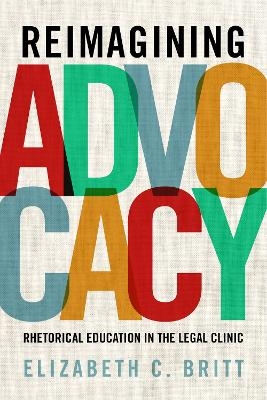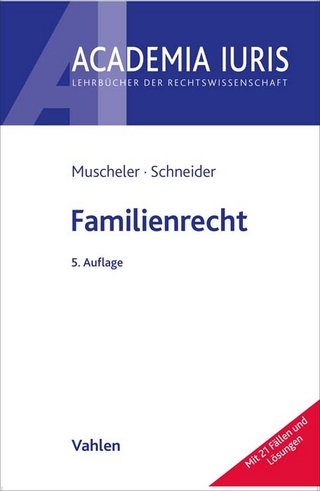
Reimagining Advocacy
Rhetorical Education in the Legal Clinic
Seiten
2018
Pennsylvania State University Press (Verlag)
978-0-271-08103-8 (ISBN)
Pennsylvania State University Press (Verlag)
978-0-271-08103-8 (ISBN)
- Titel z.Zt. nicht lieferbar
- Versandkostenfrei
- Auch auf Rechnung
- Artikel merken
Investigates how students in a clinical legal education program learned to advocate effectively and ethically with clients abused by intimate partners. Demonstrates the importance of valuing clients as experts in their own lives and as equal partners in decision making.
Domestic violence accounts for approximately one-fifth of all violent crime in the United States and is among the most difficult issues confronting professionals in the legal and criminal justice systems. In this volume, Elizabeth Britt argues that learning embodied advocacy—a practice that results from an expanded understanding of expertise based on lived experience—and adopting it in legal settings can directly and tangibly help victims of abuse.
Focusing on clinical legal education at the Domestic Violence Institute at the Northeastern University School of Law, Britt takes a case-study approach to illuminate how challenging the context, aims, and forms of advocacy traditionally embraced in the U.S. legal system produces better support for victims of domestic violence. She analyzes a wide range of materials and practices, including the pedagogy of law school training programs, interviews with advocates, and narratives written by students in the emergency department, and looks closely at the forms of rhetorical education through which students assimilate advocacy practices. By examining how students learn to listen actively to clients and to recognize that clients have the right and ability to make decisions for themselves, Britt shows that rhetorical education can succeed in producing legal professionals with the inclination and capacity to engage others whose values and experiences diverge from their own.
By investigating the deep relationship between legal education and rhetorical education, Reimagining Advocacy calls for conversations and action that will improve advocacy for others, especially for victims of domestic violence seeking assistance from legal professionals.
Domestic violence accounts for approximately one-fifth of all violent crime in the United States and is among the most difficult issues confronting professionals in the legal and criminal justice systems. In this volume, Elizabeth Britt argues that learning embodied advocacy—a practice that results from an expanded understanding of expertise based on lived experience—and adopting it in legal settings can directly and tangibly help victims of abuse.
Focusing on clinical legal education at the Domestic Violence Institute at the Northeastern University School of Law, Britt takes a case-study approach to illuminate how challenging the context, aims, and forms of advocacy traditionally embraced in the U.S. legal system produces better support for victims of domestic violence. She analyzes a wide range of materials and practices, including the pedagogy of law school training programs, interviews with advocates, and narratives written by students in the emergency department, and looks closely at the forms of rhetorical education through which students assimilate advocacy practices. By examining how students learn to listen actively to clients and to recognize that clients have the right and ability to make decisions for themselves, Britt shows that rhetorical education can succeed in producing legal professionals with the inclination and capacity to engage others whose values and experiences diverge from their own.
By investigating the deep relationship between legal education and rhetorical education, Reimagining Advocacy calls for conversations and action that will improve advocacy for others, especially for victims of domestic violence seeking assistance from legal professionals.
Elizabeth C. Britt is Associate Professor of English at Northeastern University. She is the author of Conceiving Normalcy: Rhetoric, Law, and the Double Binds of Infertility.
Contents
Preface
Acknowledgments
Introduction: Bodies, Perspectives, Advocacies
1. Attitudes toward Advocacy
2. At the Law School: Learning to Recognize the Expertise of Others
3. At the Hospital: Learning to Defer to Others
4. At the Courthouse: Learning to Support the Rhetorical Work of Others
Conclusion: Lessons
Appendix A: Research Methods
Appendix B: Interview Participants
Notes
Bibliography
Index
| Erscheinungsdatum | 12.06.2018 |
|---|---|
| Reihe/Serie | RSA Series in Transdisciplinary Rhetoric |
| Zusatzinfo | 3 Halftones, black and white |
| Verlagsort | University Park |
| Sprache | englisch |
| Maße | 152 x 229 mm |
| Gewicht | 295 g |
| Themenwelt | Recht / Steuern ► Allgemeines / Lexika |
| Recht / Steuern ► EU / Internationales Recht | |
| Recht / Steuern ► Privatrecht / Bürgerliches Recht ► Familienrecht | |
| Sozialwissenschaften ► Kommunikation / Medien ► Kommunikationswissenschaft | |
| Sozialwissenschaften ► Soziologie ► Gender Studies | |
| ISBN-10 | 0-271-08103-1 / 0271081031 |
| ISBN-13 | 978-0-271-08103-8 / 9780271081038 |
| Zustand | Neuware |
| Haben Sie eine Frage zum Produkt? |
Mehr entdecken
aus dem Bereich
aus dem Bereich
Ehe, Scheidung, Unterhalt, Versorgungsausgleich, Internationales …
Buch | Softcover (2024)
dtv Verlagsgesellschaft
CHF 26,45


